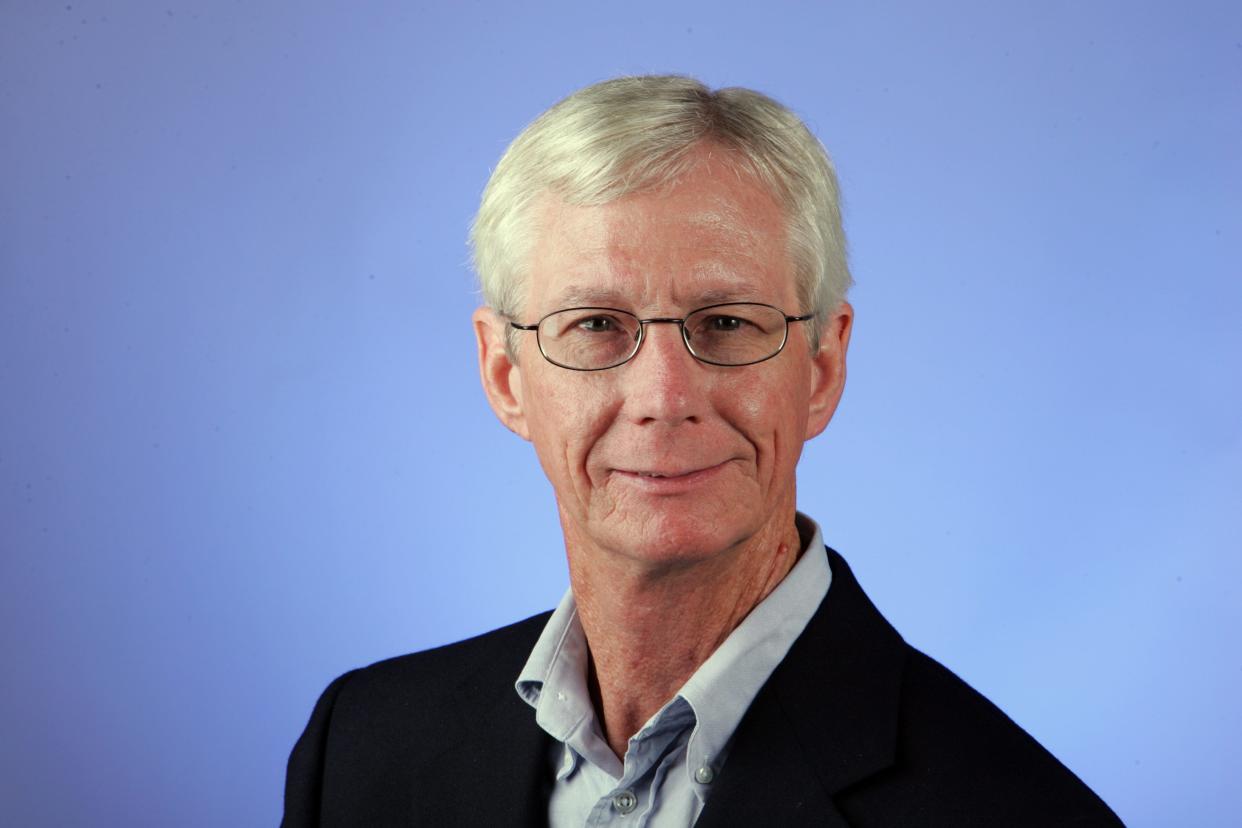At Christmas, lessons in love from refugees

In the familiar story told in the Gospel of Luke, the birth of Jesus takes place in Bethlehem, far from his parents’ village of Nazareth, because of a governmental decree that people should go to their ancestral homes to be registered. Advocates for refugees have compared the holy family’s plight to that of modern-day displaced persons, and there are similarities.
Joseph and Mary were forced from their home, away from the security of relatives and neighbors, by circumstances beyond their control. They presumably faced the hardship and expense of traveling a long way on foot, with the end of Mary’s pregnancy looming. And, at the crucial moment, she must give birth attended by strangers in an unfamiliar, and maybe rough, place. We have read enough about conditions in present-day refugee camps to get the picture, and we’re sympathetic.
Of course, Mary and Joseph were able to take the infant Jesus back to their home in Nazareth after satisfying the government. Many, if not most, of today’s refugees have little hope of returning to their villages, cities and countries, living instead in miserable camps in the hope of emigrating to a place that will let them settle permanently.
I’m not going to delve into the politics of immigration, although it is worth noting that according to the United Nations’ refugee agency, an estimated 84 million people worldwide were forcibly displaced as of the middle of 2021, due to war, economic hardship and disease. There are hundreds of nonprofits and non-governmental organizations that try to ease their plight or to help resettle the fortunate few that are allowed to leave the camps and find a new home.
I have some personal experience with one such organization. It is called Jubilee Partners, and it’s located just outside the rural town of Comer, Ga. For more than 40 years, supported by donations, Jubilee has existed as an intentional Christian community whose mission is to help new emigres adjust to life in the U.S. I’m familiar with it because my late mother-in-law lived there for many years.
About 30 permanent residents of the community and a host of volunteers annually take in refugees sent by the U.S. State Department and offer a variety of services. They teach the new arrivals – who are usually scared, disoriented and know no one in America – rudimentary English, how to navigate a supermarket, how to get utilities, and so on. They also help them make connections with others who have come before them. (For more information about Jubilee Partners, see jubileepartners.org.)
Over the past 15 years, Jubilee has been a destination for refugees of the Karen (pronounced ka-REN) people, a persecuted minority group in Myanmar. Many of the Karen are Baptists, descendants of the first converts of legendary Baptist missionary Adoniram Judson, and they have been forced out of their homes in Myanmar into camps in Thailand. They have a rich, distinctive culture and a deep faith.
Many of the Karen have settled in rural northeast Georgia, starting families, sending kids to school, finding jobs and even starting their own businesses, in the time-honored fashion of American immigrants. The local Baptists recognized them as fellow believers and helped them start a church that worships in their own language.
Jubilee’s Fall newsletter tells of one recently arrived family, a couple and their two young sons. The father fled to a refugee camp when he was 16, and his wife was born in the camp, living there for 23 years. The folks at Jubilee introduced them to the local Karen community, who invited them to church, helped them get transportation and a house and found the father a job.
The newsletter goes on, “Our good friend Eh Kaw has helped a great many new families get settled into life in Comer. We asked him to explain why he has put so much of his time and energy into helping other families. He said, ‘Jesus said he came to bring the kingdom. I feel like I need to do something. … In heaven you have to give away, and he will give it back to you. It’s like fishing. You have to give the bait away. If you want love, you have to give love. If you want peace, you have to make peace.’”
It’s hard to imagine a better Christmas message than that. Merry Christmas.
Cary McMullen is a retired journalist. He is the former religion editor of The Ledger.
This article originally appeared on The Ledger: At Christmas, lessons in love from refugees

